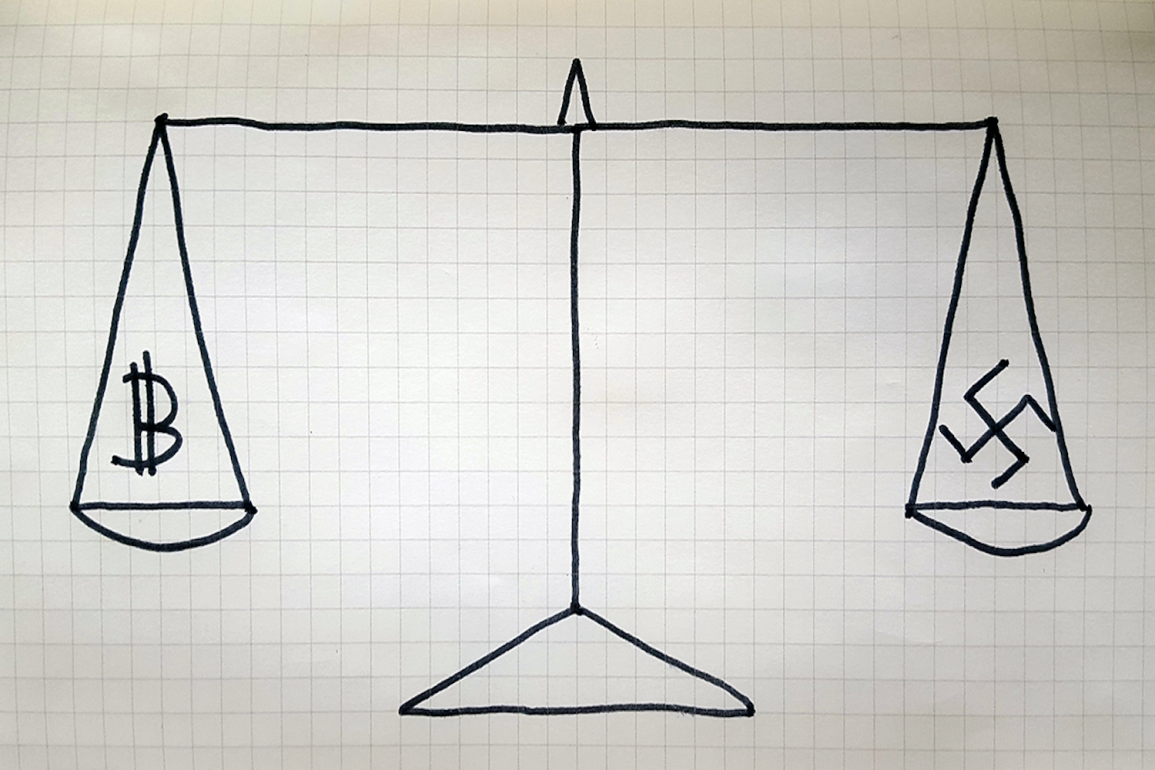By Richard D. Bartlett and originally published at Enspiral Tales on medium.com
I gave a talk today at the re:publica conference in Dublin [video here]. Every time I go to one of these internet-and-society conferences I get very grumpy about the blockchain hype, so today I used my stage time to spell out my grumpiness. Here’s what I said…
There is a lot of anticipation for how blockchain and other decentralising technologies are going to drastically reshape society.
Civilisation ❤️ trusted databases
It might help to think of blockchain as a distributed database, that nobody owns, and everybody trusts.
Then you think about all the trusted centralised databases that make society work today. I’m thinking basically anything to do with money: transactions, insurance, finance, the stockmarket… and lots of government functions too, like who can vote, tax, benefits, laws, citizenship…
So much of our identities, interactions, prohibitions and affordances are regulated by these trusted, centralised databases.
So people have a good reason to get excited about blockchain: we’ve figured out how to make a trusted database that is decentralised: nobody owns it. Surely this innovation is going to change a lot. The explosion of cryptocurrencies prove we can already print our own money, and we’re just getting started: probably we can write our own laws, hold our own elections, build new markets with new values… basically replace all the old slow corrupt institutions with shiny new ones we make ourselves… yes! all of that is exciting! But…
How can we decentralise power?
If you take a step back from the technology, if you look at the challenges we face in wider society, and you look at the history of social change, if you step back and just consider for a minute: “how can we decentralise power?”, then “build a better database” feels like a pretty weak answer. To me, it seems obvious that some of the most urgent power imbalances fall on gender, race, and class lines.
In the project of decentralising power, blockchain is mostly a red herring, distracting from the real work: dismantle patriarchy, make reparations for colonisation, end wage slavery. (p.s. we have to kill fascism again too.)
I’m really excited about how decentralising technology is going to help decentralise power. My challenge to the blockchain entrepreneurs and the funders is simple: if you’re going to claim your project is decentralising power, please explain it to me in terms of justice, rather than just efficiency and disintermediation.
It’s fun to think about how technology can decentralise power at an epic scale. But if you get 10 people trying to work together, you’ll see how power really works.
If we can solve these human coordination problems at a small scale, then I’m much more hopeful that our large scale interventions will bend towards justice and equality. But if we can’t figure out how to share power at the scale of 10 or 100 people, I don’t have much hope that the cyber-institutions we build are going to be any more just or equitable than our existing ones.
What happens when we empower social movements with fintech?
If you’re working in decentralisation tech, please don’t get me wrong. I’m glad you’re working on these projects, and I don’t expect you to fix all the problems all at once. It’s exciting to imagine how much good could come from reinventing money, law, and citizenship. All I’m asking is, if you are serious about decentralising power, please make friends with some folks working on decolonisation, workers rights, feminism, or other social movements, and see what you can learn from each other. Imagine if #Occupy or #IdleNoMore or #BlackLivesMatter or #WomensMarch graduated from a social movement to an economic movement.
Decentralisation tech projects that are designed to decentralise power
In this public Facebook post I put out a call, asking for pointers to any decentralisation projects that are explicitly justice-oriented or commons-oriented. Here’s the list I’ve gathered so far, please suggest additions:
- faircoin: cryptocurrency w/ cooperative, social justice, democratic, ecological ethics
- osm-p2p: mapping tools supporting indigenous resistance to extractive industry
- scuttlebutt.nz: gossip platform w/ great community
- economic space agency: for commons-oriented decentralised programmed organisations
- social.coop: democratically governed microblogging
- redecentralize.org: community + app directory
- duniter: cryptocurrency with built-in Basic Income
Update — some new additions to this list since publishing:
- Givetrack — Bitcoin for philanthropy
- Giveth — charitable giving on Ethereum
- democracy.earth — liquid democracy
- CEPTR — commons oriented peer to peer… something
Thanks to the P2P Foundation Wiki for tracking projects like this ?
p.s. If you want to encourage me to keep writing: please recommend this story, and if you’re able, give me dollars on Patreon or Bitcoins on 1G6ab4aiYA42zauY4jBJDWY6xz64CepKrE ?
Republished with permission of the author.
Featured image/graphic link added by Enlivening Edge Magazine from original article.




